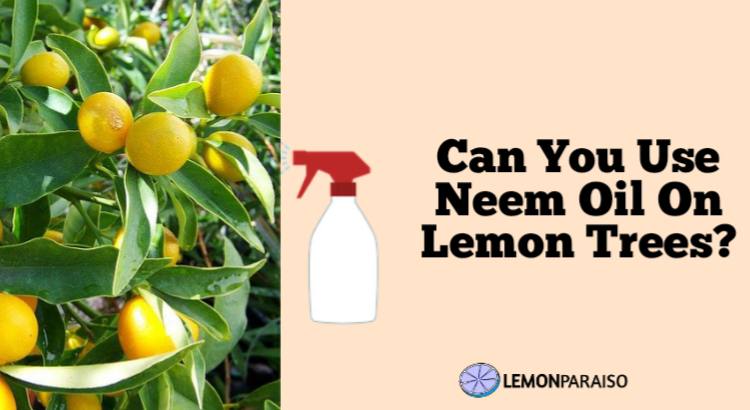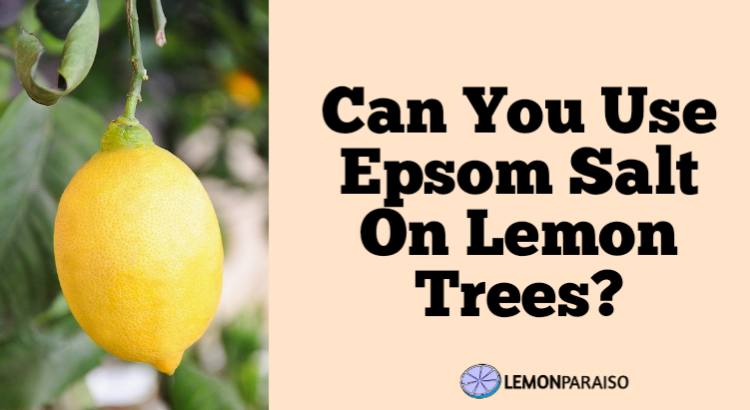Do Lemon Trees Grow In Louisiana?
Lemon trees are a popular choice among gardeners due to their refreshing scent and vibrant yellow fruits. One question that often arises is whether lemon trees can grow in Louisiana, given the state’s hot and humid climate.
Can Lemon Trees Grow In Louisiana?
Lemon trees can indeed grow in Louisiana, as the climate in the state is conducive to citrus cultivation. The warm, humid subtropical climate of Louisiana provides a suitable environment for growing citrus trees, including lemons.
The mild winters and long growing seasons offer ample opportunity for lemon trees to thrive. Gardeners in Louisiana can enjoy the beauty of these trees and the delicious fruit they produce.
However, it is essential to choose the right lemon tree variety and provide proper care to ensure the tree’s health and productivity. Some hardy lemon tree varieties can even withstand occasional frost, making them well-suited to Louisiana’s climate.
What Are The Best Lemon Tree Varieties To Grow In Louisiana?
In Louisiana, the best lemon tree varieties to grow include the Improved Meyer lemon, the Ponderosa lemon, and the Eureka lemon. The Improved Meyer lemon is a popular choice because it is cold-hardy and can tolerate temperatures down to 20°F.
This variety is also known for its sweet, juicy fruit that is less acidic than other lemon types. The Ponderosa lemon is another excellent option, known for its large fruit and ability to withstand cooler temperatures. Eureka lemon trees are also suitable for Louisiana, as they produce fruit year-round and are highly productive in the region’s climate.
What Is The Best Time To Plant Lemon Trees In Louisiana?
The best time to plant lemon trees in Louisiana is during the early spring, from February to April. Planting during this period allows the trees to establish their root systems before the intense heat of summer arrives.
This timeframe provides a better chance for the tree to acclimate to the outdoor conditions and encourages healthy growth. If planting in the fall, it is essential to ensure the tree has enough time to establish itself before the winter season. When planting, avoid exposing young trees to frost or extreme temperature fluctuations, which can stress or damage the tree.
What Type Of Soil Do Lemon Trees Need To Grow In Louisiana?
Lemon trees in Louisiana require well-draining, loamy soil with a slightly acidic pH of 6.0 to 6.5. This type of soil promotes healthy root growth and prevents waterlogging, which can lead to root rot and other issues.
To improve drainage, gardeners can add organic matter, such as compost or well-rotted manure, to the planting site. It is also crucial to ensure that the planting location does not have a high water table, as this can cause problems for the tree’s root system. Regular soil tests can help to monitor and maintain the proper pH level for optimal growth.
How Much Sunlight Do Lemon Trees Need In Louisiana?
Lemon trees in Louisiana require at least six to eight hours of direct sunlight per day to grow and produce fruit. Full sun exposure promotes healthy growth, flowering, and fruit development.
When selecting a planting location, choose a spot that receives consistent sunlight and is protected from strong winds.
A southern or southeastern exposure is ideal for maximizing sun exposure throughout the day. If planting multiple lemon trees, space them at least 12 to 15 feet apart to ensure they receive adequate sunlight and airflow.
What Are The Common Problems Faced By Lemon Trees In Louisiana?
Common problems faced by lemon trees in Louisiana include pests, diseases, and environmental issues. Pests like citrus leafminers, aphids, and scale insects can damage the tree and its fruit.
Regular monitoring and early intervention with organic or chemical treatments can help keep pests in check. Diseases such as citrus canker, root rot, and greasy spot fungus can also affect lemon trees.
Proper sanitation, pruning, and preventative measures can help manage these issues. Environmental factors like frost, waterlogging, and nutrient deficiencies can also impact tree health. Adequate protection, proper irrigation, and soil amendments can mitigate these challenges.
Can Lemon Trees Be Grown In Pots In Louisiana?
Lemon trees can be grown in pots in Louisiana, making them an excellent option for those with limited space or who want to move the tree indoors during cooler weather. When selecting a container, choose a large pot with drainage holes to prevent waterlogging.
A pot that is 18-24 inches in diameter should provide ample space for the root system. Use well-draining potting soil, and ensure the pH level is appropriate for lemon trees. Container-grown lemon trees will require more frequent watering and fertilization than their in-ground counterparts, as nutrients are more quickly depleted in potted environments.
How Long Does It Take For Lemon Trees To Bear Fruit In Louisiana?
In Louisiana, lemon trees typically begin to bear fruit within 2 to 4 years after planting, depending on the variety and care provided. Grafted trees tend to bear fruit sooner than those grown from seed.
Providing the tree with proper care, including adequate sunlight, water, and nutrients, will help promote fruit development. Regular pruning to maintain the tree’s shape and remove dead or diseased branches can also encourage fruit production. Patience is key, as it takes time for a lemon tree to reach maturity and produce a bountiful harvest.
How Do You Care For Lemon Trees In Louisiana?
Caring for lemon trees in Louisiana involves providing the tree with the appropriate sunlight, water, and nutrients, as well as protecting it from pests, diseases, and extreme temperatures.
Ensure the tree receives at least six to eight hours of sunlight daily and is planted in well-draining soil. Water the tree regularly, allowing the soil to dry slightly between waterings to prevent root rot. Apply a citrus-specific fertilizer according to the package instructions, usually three to four times per year.
Prune the tree annually, removing dead, diseased, or crossing branches to maintain its shape and encourage healthy growth. Monitor for pests and diseases, and treat any issues promptly to maintain the tree’s overall health. If frost or freezing temperatures are expected, protect the tree using frost blankets, heat lamps, or by moving container-grown trees indoors.




